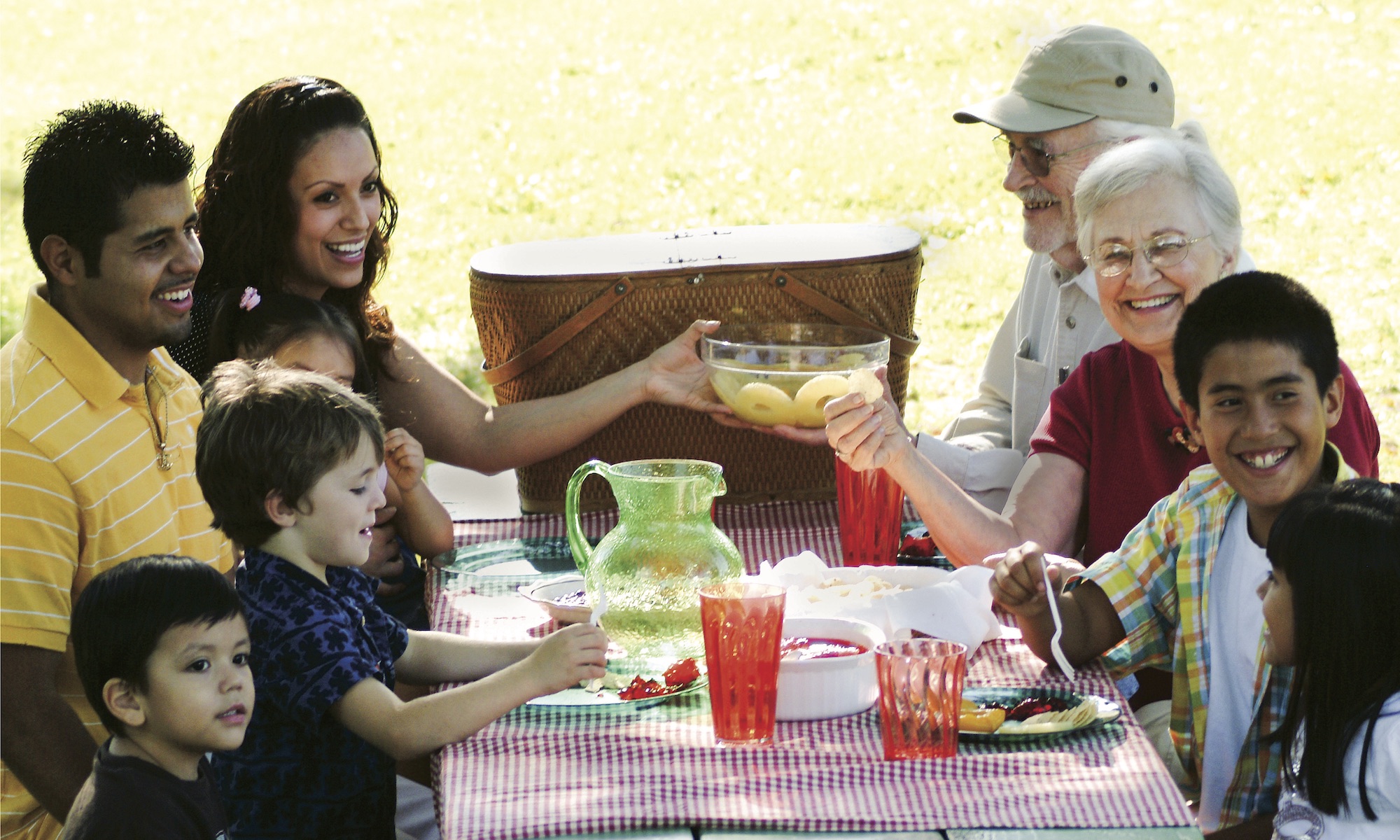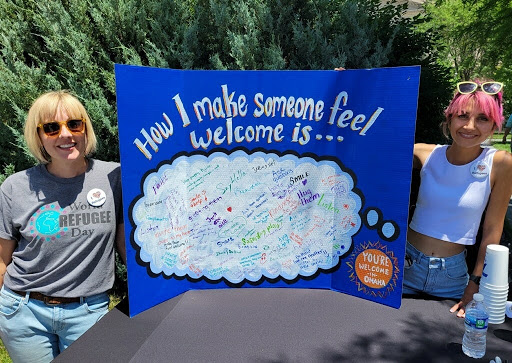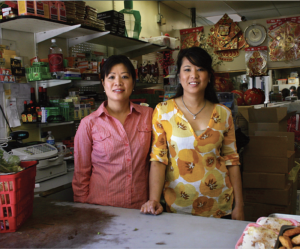Most of us would do whatever it takes to keep our families safe and secure—whether we were born here or came here seeking a better future. Right now, we have heard of a concerning increase in hate incidents in communities all across Nebraska. This is not who we are. Division and hateful rhetoric cause fear and uncertainty among neighbors. It pits our neighbors against each other and damages communities by causing pain and distraction away from our common values.
Placing blame on people of color or neighbors who are immigrants is damaging to communities and distracts attention from the dismantling agencies and systems created to give all of us a fair chance.
But across race, place, and background, we know the truth: when our families are safe, our communities thrive. It’s love and connection that build strong neighborhoods, not fear and separation. Humans need a sense of belonging and will seek that out. Creating strong and inclusive communities, and knowing our neighbors can prepare us to provide support for communities of color and identify those drawn to White supremacy groups.
That’s why we’re coming together to protect each other, keep our communities whole, and create a future where every one of us—no matter our background—can live with dignity, freedom, and real opportunity.
Understanding Hate Incidents & Hate Crimes
A hate incident is a threat, use of derogatory language, or ethnic slur, or graffiti that is targeted based on race, religion, disability, gender, or sexual orientation – while a hate crime, is a criminal act (such as assault and or violence) or attempted crime against a person based on the person’s race, nationality, religion, gender, disability, or sexual orientation, – both should be reported. Take photos if possible, write down details taking note of any words said or symbols. Even if these words or symbols don’t make sense to you, they may be helpful to the police.
Tools & Resources for Welcomers: Opposing Bullying & Hate
Some of you might remember us sharing downloadable resources on ‘Bullying-What can you do?’ and ‘Hate Incidents’. After a few edits and compiling resources to share, we are ready to share our updated materials, which you can find links to below!
-
- Printable Resources about bullying and hate incidents in multiple languages – One of the most important things about building a welcoming community is making sure everyone is safe and protected from harm. Click the links below for an easy immediate download. (We will be uploading new translated documents as we receive them and will send out an email when we have them all ready!)
- Bullying – Arabic
- Bullying – English
- Bullying – Spanish
- Bullying – Dari
- Bullying – French
- Bullying – Karen
- Bullying – Pashto
- Bullying – Somali
- Bullying – Vietnamese
- Responding to Hate Crimes – Arabic
- Responding to Hate Crimes – English
- Responding to Hate Crimes – Spanish
- Responding to Hate Crimes – Dari
- Responding to Hate Crimes – French
- Responding to Hate Crimes – Karen
- Responding to Hate Crimes – Pashto
- Responding to Hate Crimes – Somali
- Responding to Hate Crimes – Vietnamese
- Printable Resources about bullying and hate incidents in multiple languages – One of the most important things about building a welcoming community is making sure everyone is safe and protected from harm. Click the links below for an easy immediate download. (We will be uploading new translated documents as we receive them and will send out an email when we have them all ready!)
- Are you curious about engaging in a deeper discussion in your community? We can partner with you and help provide a facilitated discussion or equip you with the tools necessary to facilitate your own discussion! We have a few tools we use below, please reach out to us by replying to this email or reaching us by phone.
- Cracking The Codes is a film designed to help groups talk about race and equity. Because these conversations are vital to creating inclusion and belonging, we can help bring this tool to your workplace, neighborhood, school or faith group. Email us to start planning a community dialogue.
- Welcoming Week 2025 is around the corner (September 12-22). As you start planning your events, check out the Welcoming Week resources for inspiration and tools!
Resources for Opposing Hate
- A Community Guide For Opposing Hate: This manual provides a guide for those who want to “do something” about hate, not only for the immediate aftermath of a hateful act, but for years to come to improve their community.
- Concerned about someone you know? Confronting Conspiracy Theories And Organized Bigotry at Home: A Guide for Parents and Caregivers
Resources to learn more about hate groups
- Southern Poverty Law Center provides in-depth information on hate groups, hate crimes, and hate incidents across the U.S. It’s a valuable resource for learning how hate manifests in communities and how to respond.
- Decoding Hate Symbols: from Viking hammers to flags of fictional countries, National Geographic breaks down the origins and evolution of hate symbols.
- Facing History & Ourselves is an educational organization and resource hub dedicated to using lessons of history to challenge teachers and students to stand up to bigotry and hate. They offer a wide range of materials, including lesson plans, primary sources, teaching strategies, and professional development opportunities.
- Leadership Conference on Civil and Human Rights is a leading source for information and advocacy on civil rights issues in the U.S. It offers updates, resources, and campaigns that promote equality, protect voting rights, and advance justice for all communities.
Thank you for your continued dedication to creating spaces of belonging for all in our communities. Please feel free to reach out to us with any questions or thought partnership.




 Welcome! In case you’re new here, Tea Time is a quarterly newsletter where
Welcome! In case you’re new here, Tea Time is a quarterly newsletter where  The recent uptick of discrimination and intolerance against Asian-Americans – nationally as well as within Nebraska – has certainly been fueled by racist rhetoric and messaging, including from top government leaders who wrongly referred to the COVID-19 pandemic using false names that stoked unfounded fears and perpetuated stigma about Asian Americans. These actions have been extremely harmful to our community at large.
The recent uptick of discrimination and intolerance against Asian-Americans – nationally as well as within Nebraska – has certainly been fueled by racist rhetoric and messaging, including from top government leaders who wrongly referred to the COVID-19 pandemic using false names that stoked unfounded fears and perpetuated stigma about Asian Americans. These actions have been extremely harmful to our community at large.